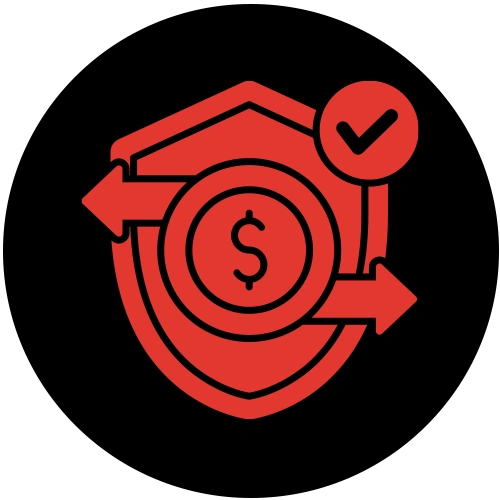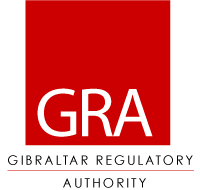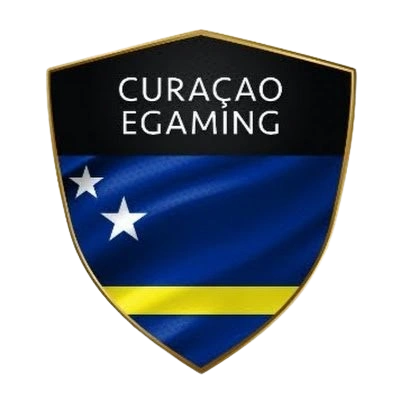Online Casino License Types – Reliable Gambling Licenses 2025
Before you deposit a single dollar, verify the casino’s credentials. Not all flashing lights and bonus offers mean safety. The backbone of any trustworthy gambling site is its online casino licenses. These aren’t decorative badges – they’re legal contracts between regulators and operators, ensuring licensed and safe online casinos meet strict standards for fairness, security, and player protection. Whether you’re chasing jackpots or casual spins, knowing casino license types and the casino licensing authority behind them is your first line of defense.
Best Licensed Online Casinos for US Players
Our list of the best licensed online casinos for US players features only trusted sites that meet strict regulatory standards. Enjoy top-rated games, secure payments, and fair play – all from casinos approved to operate legally in the United States.
Why is a Gambling License Crucial for Players?
A license isn’t optional paperwork. It’s the legal foundation that separates legitimate operators from fly-by-night scams. Licensed casinos must prove they’re financially stable, technologically secure, and ethically operated. For players, this translates to real-world protections – from dispute resolution to guaranteed payouts.

Player Protection and Fair Play
Licensed casinos use certified Random Number Generators (RNGs) for every spin, card deal, or dice roll. Independent labs like iTech Labs or eCOGRA audit these systems monthly. For example, a slot game like “Book of Dead” must maintain its advertised 96.2% RTP (Return to Player) across millions of spins. Unlicensed casinos can manipulate outcomes without consequence. UKGC licensed casinos? Tampering means losing a $50,000+ annual license and permanent blacklisting.

Secure Transactions and Data Safety
Your credit card details, ID scans, and login credentials are encrypted using 256-bit SSL – the same standard used by banks. Regulatory bodies like the Malta Gambling Authority mandate this. They also require segregated player accounts. At an MGA casino, your $500 deposit sits in a separate bank account, untouched by operational costs. If the casino goes bankrupt? You get your money back. Unlicensed sites? Your funds vanish with the operator.

Dispute Resolution and Support
Stuck in a withdrawal limbo? Licensed casinos must respond within 48 hours. Escalate to the UK Gambling Commission, and they’ll mediate – often forcing the casino to pay within 14 days. Unlicensed casinos ignore complaints. No regulator, no leverage. Kahnawake licensed operators even publish monthly dispute reports – transparency you won’t find elsewhere.

Responsible Gambling Tools
Regulated gambling sites embed tools like deposit limits (set daily/weekly caps), session timers (auto-logout after 60 minutes), and self-exclusion (block access for 6+ months). The UKGC requires these by law. At a Curaçao-licensed casino? Tools exist but aren’t mandatory. Choose wisely if you’re managing gambling habits.
How to Check and Verify an Online Casino License?
Before trusting an online casino with your time and money, it’s essential to ensure it operates legally and holds a valid license. Follow these steps to find an answer on how to check casino license and protect yourself from scams:
Legit casinos display their license number (e.g., “MGA/B2C/123/2020”) at the bottom of every page.
It should redirect you to the regulator’s official verification portal.
Enter the license number. Verify the operator name matches the casino’s “About Us” page.
Regulator sites list fines or suspensions. A UKGC casino fined $1.2M in 2024 for lax ID checks? Proceed with caution.
Licensed casinos only partner with certified studios (NetEnt, Evolution, Pragmatic Play). If you see “unknown developer slots,” walk away.
Use WHOIS to check domain registration. A casino launched 3 weeks ago with a “10-year license”? Red flag.
Top-Tier Gambling Licenses: The Gold Standard
When it comes to online gambling, having a license from a top-tier regulator is a mark of trust and integrity. These regulators set the global benchmark for fairness, transparency, and player protection. Their audits are rigorous, their fines are steep, and their standards leave no room for error. If you’re looking to operate or play with confidence, these are the licenses to look for.
UK Gambling Commission (UKGC)

The UKGC is one of the most respected regulators in the world. To obtain and maintain this license, operators must adhere to strict guidelines designed to protect players and ensure fair play. Here’s what makes the UKGC stand out:
- Jurisdiction: United Kingdom
- Key Requirement: All casino games must undergo RNG + RTP certification. Player funds are required to be held in UK banks.
- Player Perk: Winnings are tax-free for UK residents.
- Casino License Cost to Operator: $5,000 application fee + up to $57,000/year based on revenue.
- Example: NetBet holds UKGC license #000-039435-R-319384-007.
Malta Gaming Authority (MGA)
Another highly respected regulatory body, the MGA is known for its rigorous standards and player protection focus. Here’s what sets them apart:
- Jurisdiction: Malta (EU)
- Key Requirement: Mandatory 24/7 customer support. Monthly financial audits.
- Player Perk: Access to EU-wide dispute resolution via EGBA.
- Cost to Operator: $25,000–$50,000/year + 0.5%–1.25% of revenue.
- Example: Wildz operates under MGA license #MGA/B2C/557/2018.
Gibraltar Regulatory Authority

The GRA is a well-established regulator known for its strong emphasis on compliance and player safety. Key features include:
- Jurisdiction: Gibraltar
- Key Requirement: Real-time transaction monitoring. Anti-money laundering (AML) training for staff.
- Player Perk: Fast-track complaint handling (avg. 7 days).
- Cost to Operator: $85,000/year minimum.
- Example: 888 Casino (Gibraltar license #RGL 077).
Offshore and Regional Gambling Licenses
Beyond the major international bodies, a number of offshore and regional licensing authorities cater to a different segment of the online gambling market. These licenses are often more budget-friendly for operators, but their standards, oversight, and player protections can vary significantly. Some offer credible regulation within their jurisdictions, while others are notorious for providing little more than a legal loophole. It’s crucial for players to understand the nuances of these licenses when choosing a platform.
Curaçao eGaming

One of the most frequently encountered offshore licenses, Curaçao eGaming is known for its broad reach and lower barriers to entry. However, this comes at the cost of robust player protection and stringent oversight.
- Jurisdiction: Curaçao (Dutch Caribbean)
- Reality Check: One master license covers 100+ sub-brands. Minimal oversight. No mandatory RNG audits.
- Player Risk: Disputes handled by the casino – not a neutral regulator.
- Cost to Operator: $15,000–$25,000/year.
- Example: Thor Casino (Curaçao eGaming license #5536/JAZ).
Kahnawake Gaming Commission

Located within Canada, the Kahnawake Gaming Commission provides licensing with a distinct focus on server integrity and player transparency, offering a more robust alternative among regional options.
- Jurisdiction: Mohawk Territory of Kahnawake, Canada
- Strength: Rigorous server-location checks. Games must be hosted on-site.
- Player Perk: Public dispute logs (e.g., “Player X won $2,300 after 12-day delay”).
- Cost to Operator: $35,000 application + $25,000/year.
Example: Hugo Casino (Kahnawake Gaming license #0086).
Other Regional Licenses
Several other regional authorities issue gambling licenses online, each with its own specific focus, regulatory environment, and implications for both operators and players.
- Estonia (Tax and Customs Board): Strict AML rules. Ideal for Baltic players.
- Isle of Man: Focus on blockchain casinos. Low fraud rates.
- Costa Rica: “license” is often just a business registration. Avoid unless paired with UKGC/MGA.
The Casino Licensing Process: An Overview
So, you want to open an online casino? You can’t just set up a website and start taking bets. The process is rigorous, ensuring only legitimate operators enter the market. Getting licensed takes anywhere from 6 to 12 months, and regulators will dig into every single detail of your operation.
Key Stages of Application
Before obtaining a gaming license, applicants must navigate several critical stages to meet regulatory requirements. Here’s a breakdown of how to get a casino license:
- Background Checks: Regulators scrutinize owners’ criminal records, financial history, and past business conduct.
- Technical Audit: This involves RNG certification, server security (often ISO 27001), and game fairness reports.
- Financial Proof: You’ll need to demonstrate significant operational capital, for example, a minimum of $100,000 for an MGA license or $1M for UKGC high-revenue tiers.
- Policy Submission: This covers everything from Anti-Money Laundering (AML) procedures and responsible gambling tools to comprehensive customer complaint workflows.
Costs and Financial Requirements
Regulators don’t hand out licenses for free. They demand upfront fees, annual renewals, and proof of financial stability to ensure operators can pay out winnings, protect player data, and stay solvent under pressure. Below, there is a breakdown of the real costs behind four major licensing jurisdictions – from the UK’s million-pound liquidity demands to Curaçao’s bare-minimum entry point. This isn’t theoretical: these numbers determine how safe your money is the moment you click “deposit.”
| Jurisdiction | Application Fee | Annual Fee | Financial Guarantee |
|---|---|---|---|
| UKGC | $5,000 | $2,500 – $57,000 | $1M+ liquidity |
| MGA | $5,000 | $25,000 – $50,000 | $100,000 capital |
| Curaçao | $5,000 | $15,000 – $25,000 | None |
| Kahnawake | $35,000 | $25,000 | $100,000 bond |
Ongoing Compliance and Audits
Compliance is continuous. This means monthly financial reports and RNG re-tests, quarterly AML procedure reviews, and annual re-licensing audits. Failure can lead to severe consequences; for instance, a Gibraltar casino lost its license in 2024 for delaying $200K in player payouts.
The Whitelabel Solution: A Faster Route to a Licensed Casino
For new operators, the Whitelabel casino license offers a way to bypass the lengthy 12-month process of obtaining a casino license by leasing a pre-licensed platform. It’s similar to renting a fully equipped restaurant kitchen instead of building one from scratch. In this setup, a company with an existing license, such as a Malta license, allows another company to use it for a fee, often around $50,000 per year. The second company can then brand the platform as their own, like renaming it “Jackpot Lounge.”
Conclusion: Choosing a Licensed Casino – Your Safety Net
Your money, your personal data, your valuable time – all are rigorously protected when you choose an online casino operating under the right regulatory license. As online casinos move further into 2025, the landscape of online gambling demands heightened caution; never gamble on unregulated or dubious sites. Always stick to operators licensed by reputable authorities such as the UK Gambling Commission (UKGC), the Malta Gaming Authority (MGA casino license), or the Gibraltar Regulatory Authority for ironclad security and peace of mind.
While offshore licenses from jurisdictions like Curaçao might seem attractive due to their accessibility, exercise extreme caution; only consider them if you have thoroughly verified their payout speeds, dispute resolution records, and overall player satisfaction through independent forums and reviews. A license isn’t merely a suggestion or a formality – it’s your legally binding contract for fair play, transparent operations, and robust consumer protection. Make it a habit to read it, verify its authenticity, and understand its implications. Only then, with full confidence in your chosen platform, should you place your bets and spin the reels.
FAQ about Licensed Online Casinos
Are casinos with offshore licenses like Curaçao as safe as UK or MGA licensed casinos?
No. Curaçao licenses lack mandatory RNG audits and neutral dispute resolution. UKGC/MGA casinos face fines up to 10% of annual revenue for violations. Curaçao? A warning letter. Choose offshore only if player forums confirm fast payouts.
Which gambling licenses are most trusted for US players?
New Jersey Division of Gaming Enforcement (DGE) tops the list. Operators like BetMGM hold NJ licenses, ensuring state-specific consumer protections. Kahnawake is a distant second for offshore play.
Do all licensed casinos guarantee fair play and player protection?
No. “Licensed” ≠ “trustworthy.” Curaçao and Costa Rica are types of casino licenses with minimal checks. Always cross-verify with independent audits (eCOGRA, iTech Labs) and player reviews.
How often do regulatory authorities audit licensed online casinos?
Regulatory authorities audit licensed online casinos at varying frequencies. The UKGC and MGA conduct monthly financial audits and RNG checks. In contrast, Curaçao requires annual self-reporting without third-party verification. Meanwhile, Kahnawake performs quarterly server inspections along with monthly dispute reviews.
Do US states regulate online casinos differently?
Yes. New Jersey mandates 90%+ RTP on slots. Pennsylvania requires in-state servers. Michigan allows crypto deposits. Always check your state’s gaming board rules.
Can I legally play at a casino that is licensed in a different country from mine?
Yes, but your winnings may be taxed. Example: A German player at a UKGC casino pays 0% tax. The same player at a site with Curaçao Gambling License? Must declare winnings to German tax authorities. Check local laws.
